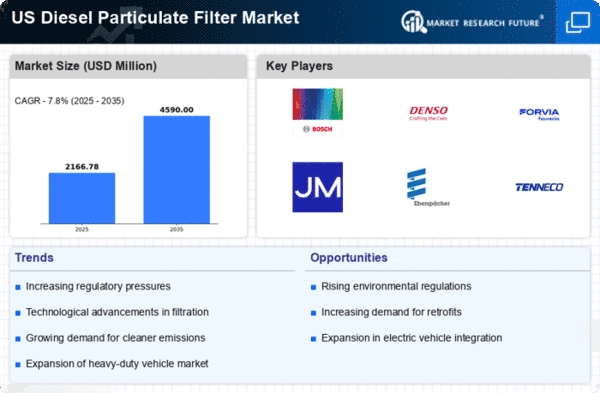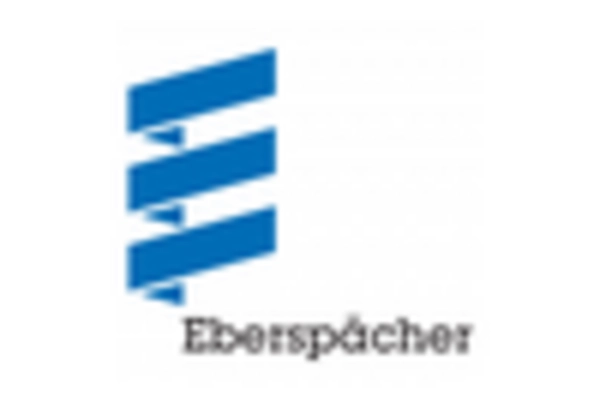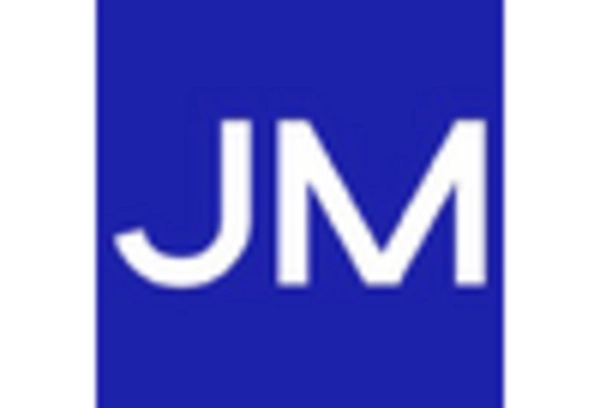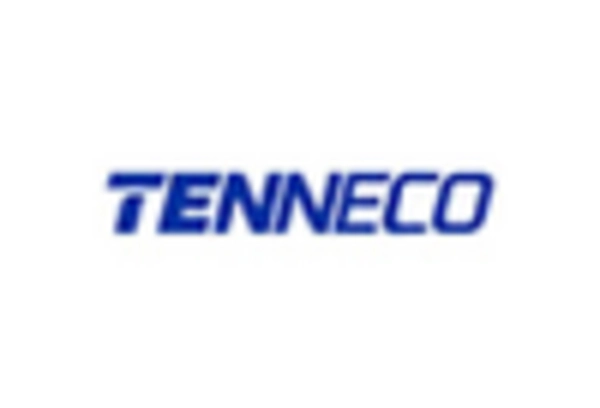Increasing Environmental Regulations
The diesel particulate-filter market is experiencing growth. This is due to the increasing environmental regulations imposed by federal and state agencies in the US. These regulations aim to reduce emissions from diesel engines, which are known to contribute to air pollution and health issues. The Environmental Protection Agency (EPA) has set stringent standards for particulate matter emissions, compelling manufacturers to adopt advanced filtration technologies. As a result, the demand for diesel particulate filters is expected to rise, with the market projected to reach approximately $3 billion by 2026. This regulatory landscape not only drives innovation in the diesel particulate-filter market but also encourages manufacturers to invest in research and development to meet compliance requirements.
Increased Awareness of Health Impacts
Increased awareness of the health impacts associated with diesel emissions is driving the diesel particulate-filter market. Public health campaigns and research studies have highlighted the adverse effects of particulate matter on respiratory health, prompting both consumers and policymakers to take action. This heightened awareness has led to a greater emphasis on the implementation of diesel particulate filters in vehicles and industrial applications. As a result, manufacturers are responding to this demand by enhancing their product offerings and ensuring compliance with health-related regulations. The diesel particulate-filter market is likely to see sustained growth as awareness continues to rise, with potential market expansion driven by the need for cleaner air and improved public health outcomes.
Rising Demand for Clean Transportation
The diesel particulate-filter market is significantly influenced by the rising demand for clean transportation solutions in the US. As consumers and businesses become more environmentally conscious, there is a growing preference for vehicles equipped with advanced emission control technologies. This trend is particularly evident in the commercial vehicle sector, where fleet operators are increasingly adopting diesel particulate filters to comply with emissions standards and enhance their sustainability profiles. The market is projected to grow at a CAGR of 5% from 2025 to 2030, driven by this shift towards cleaner transportation options. Consequently, the diesel particulate-filter market is poised to benefit from the increasing integration of these filters in new vehicle models.
Growth of the Automotive and Industrial Sectors
The diesel particulate-filter market is benefiting from the growth of the automotive and industrial sectors. This growth is occurring in the US. As these sectors expand, the demand for diesel engines, which are widely used in heavy-duty vehicles and machinery, continues to rise. This increase in diesel engine usage directly correlates with the need for effective emission control solutions, including diesel particulate filters. The automotive sector alone is expected to contribute significantly to the market, with projections indicating a market value of over $2.5 billion by 2027. This growth is further supported by the ongoing trend of electrification in the automotive industry, which, while promoting hybrid solutions, still relies on diesel engines for certain applications.
Technological Innovations in Filtration Systems
Technological innovations in filtration systems are playing a crucial role in shaping the diesel particulate-filter market. Advances in materials and design have led to the development of more efficient and durable filters that can withstand higher temperatures and pressures. These innovations not only improve the performance of diesel engines but also enhance the overall effectiveness of emission control systems. For instance, the introduction of ceramic and metallic substrates has allowed for better filtration efficiency and longer service life. As manufacturers continue to invest in R&D, the diesel particulate-filter market is likely to see a surge in the adoption of these advanced filtration technologies, further driving market growth.
















